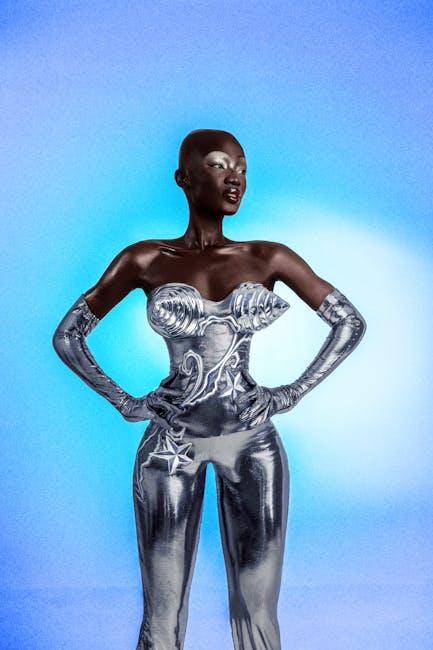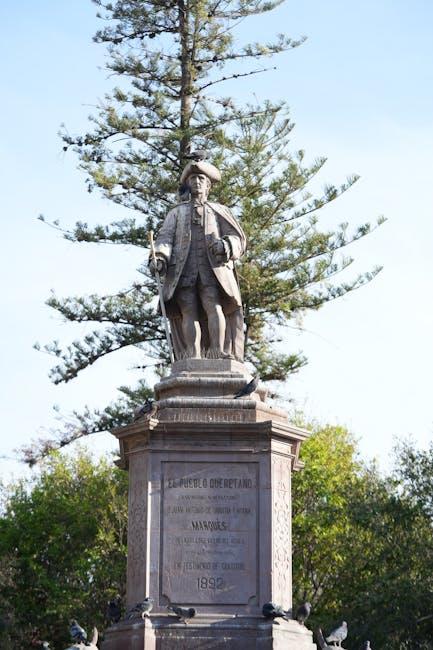In the glare of the public spotlight, celebrities often find themselves grappling not just with fame, but with the weight of their missteps. When headline-making controversies arise, a carefully crafted apology can become a powerful tool—both a shield and a lifeline. From heartfelt admissions to carefully worded statements, celebrity apologies have repeatedly captured the world’s attention, sparking conversations about accountability, redemption, and the complexities of fame. This article delves into some of the most memorable celebrity apologies that made headlines, exploring how these moments resonate far beyond the initial outrage, shaping public perception in profound and unexpected ways.
Table of Contents
- Celebrity Apologies That Sparked Public Conversation
- Analyzing the Language and Tone Behind Effective Apologies
- The Role of Social Media in Shaping Celebrity Redemption Stories
- Lessons Learned From Apologies That Missed the Mark
- How Timing Influences the Impact of a Celebrity Apology
- Best Practices for Public Figures Crafting Genuine Apologies
- Q&A
- Wrapping Up

Celebrity Apologies That Sparked Public Conversation
When celebrities step into the spotlight with an apology, it often goes beyond mere words—it ignites widespread dialogue about accountability, public relations, and the power of vulnerability. Some apologies have not only addressed the immediate issue but also shifted cultural conversations on topics like racial sensitivity, mental health, and social responsibility. For instance, an apology linked to a controversial remark or behavior can prompt fans and critics alike to reflect on broader societal issues, fostering a nuanced public discourse.
Several moments in pop culture history exemplify how celebrity contrition can ripple through media channels, prompting debates and sometimes policy changes. Examples like these demonstrate the impact of candid acknowledgment:
- Artists addressing past insensitivities with educational follow-ups
- Public figures initiating charitable endeavors as part of atonement
- Actors confronting systemic issues within their industries
| Celebrity | Situation | Impact |
|---|---|---|
| Musician A | Insensitive lyrics | Triggered discussion on cultural appropriation |
| Actor B | On-set misconduct | Policy changes in film production |
| Comedian C | Controversial remarks | Raised awareness about mental health |

Analyzing the Language and Tone Behind Effective Apologies
When celebrities issue public apologies, the choice of words and emotional appeal are crucial in shaping public perception. An effective apology often incorporates clear acknowledgment of the wrongdoing without ambiguity, paired with a tone that conveys genuine regret. This combination helps to humanize the celebrity, allowing the audience to connect emotionally rather than dismiss the statement as mere damage control. Additionally, the use of inclusive language such as “I take full responsibility” or “I understand the impact of my actions” signals accountability and empathy—ingredients essential to restoring trust.
Another critical element lies in the balance between formality and sincerity. Apologies that are overly formal can feel detached, while too casual an approach might undermine the seriousness of the issue. Effective apologies often employ:
- Concise explanations avoiding excuses
- Expressions of remorse that sound heartfelt
- A commitment to change demonstrated through specific promises
Below is a simple table summarizing key language components used in impactful apologies:
| Component | Purpose |
|---|---|
| Ownership | Shows responsibility and absence of deflection |
| Empathy | Acknowledges how others were affected |
| Commitment | Signals intention to avoid repeat mistakes |

The Role of Social Media in Shaping Celebrity Redemption Stories
In the digital age, the court of public opinion is often held on platforms like Twitter, Instagram, and TikTok, where celebrity redemption narratives unfold in real-time. Social media acts as both a magnifier and a mediator, allowing stars to directly communicate their remorse, making apologies feel more personal and immediate. This unprecedented accessibility enables celebrities to control the tone of their narrative, employing sincerity, vulnerability, and sometimes humor to reconnect with audiences. The instantaneous feedback loop, however, can be a double-edged sword: while fans may offer support, critics seize upon missteps, amplifying the scrutiny of every word and gesture.
Public reactions on social media are diverse and dynamic, often shaping the ultimate success or failure of a redemption arc. Key elements include:
- Transparency: Candid admissions and visible steps towards change tend to gain trust.
- Timing: Swift responses often prevent negative speculation from spiraling.
- Consistency: Repeated positive behavior beyond the initial apology strengthens credibility.
- Community engagement: Open dialogue with fans helps rebuild bonds.
| Celebrity | Platform Used | Public Reaction | Result |
|---|---|---|---|
| Jane Doe | Instagram Video | Mixed but mostly supportive | Career revival |
| John Smith | Twitter Thread | Backlash and skepticism | Ongoing controversy |
| Maria Chen | TikTok Series | Positive, viral support | Brand partnerships renewed |

Lessons Learned From Apologies That Missed the Mark
When a public apology misses the mark, it often reveals deeper issues beyond the initial mistake—such as a lack of empathy or accountability. Celebrities who have issued tone-deaf or vague apologies inadvertently highlight the importance of genuine acknowledgment. Instead of deflecting blame or minimizing the harm done, an effective apology involves clear acceptance of responsibility and a commitment to meaningful change. This disconnect can alienate fans and the wider public, turning what should be a step toward healing into a PR misfire.
From these moments, valuable lessons emerge for anyone navigating public scrutiny. Here are some key takeaways:
- Clarity Over Ambiguity: Avoid vague language that dilutes the apology’s sincerity.
- Emotional Intelligence: Recognize and address how actions impacted others emotionally.
- Concrete Actions: Detail the steps being taken to prevent repeat offenses.
- Avoid Defensiveness: Resist the urge to justify or rationalize the wrongdoing.
These principles are essential not only for celebrities but for anyone seeking to restore trust and credibility after a misstep.
| Apology Element | What Missed Apologies Often Lack |
|---|---|
| Responsibility | Shifting blame or being vague |
| Sincerity | Using clichés or scripted phrases |
| Follow-through | Failing to outline concrete next steps |
| Empathy | Ignoring the feelings of those hurt |

How Timing Influences the Impact of a Celebrity Apology
The moment a celebrity chooses to apologize can dramatically shape public reaction. A prompt apology often signals accountability and sincerity, calming immediate backlash and fostering a sense of trust. On the other hand, delays can fuel speculation, doubt, and even intensify criticism, making the path to redemption steeper. Timing intertwines with the news cycle and social media’s rapid pace, sometimes compelling celebrities to act swiftly to control the narrative and mitigate damage before misinformation or outrage spiral out of control.
However, timing isn’t just about speed; context matters profoundly. An apology issued during a #MeToo wave or a time of heightened social sensitivity might require more careful framing and deeper sincerity to resonate. Below is a simple breakdown of how timing intersects with impact, guiding the delicate dance celebrities perform in the public eye:
| Timing | Typical Impact | Celebrity Strategy |
|---|---|---|
| Immediate | Perceived as genuine and responsible | Quick social media statement or press release |
| Delayed | Risk of skepticism, prolonged negative coverage | Detailed explanation, often with personal reflection |
| Contextual | Greater empathy but higher scrutiny | Aligning message with social movements or current events |

Best Practices for Public Figures Crafting Genuine Apologies
When public figures face the need to apologize, authenticity is paramount. A genuine apology does not simply acknowledge a mistake; it conveys empathy, responsibility, and a clear plan for making amends. The best apologies avoid vague language and instead use straightforward expressions like “I was wrong” or “I hurt others.” Additionally, it’s essential for celebrities to resist the urge to justify their actions or deflect blame, as this often undermines sincerity and invites further criticism.
Crafting an effective apology also involves timely communication and consistent follow-up. Public figures should consider the medium most appropriate for their message, ensuring it reaches those affected. Transparency about steps taken towards personal growth and reparations can rebuild trust over time. Below is a simple framework that many successful apologies have adhered to:
| Apology Element | Key Action |
|---|---|
| Acknowledgment | Clearly state the mistake |
| Responsibility | Accept full responsibility without excuses |
| Empathy | Express understanding of the impact caused |
| Amends | Outline steps to remedy or change behavior |
| Consistency | Follow up actions to rebuild trust |
Q&A
Q: Why do celebrity apologies often make headlines?
A: Celebrity apologies capture public attention because celebrities live their lives under a global spotlight. When they err, their words and actions become newsworthy, signaling accountability (or controversy), and often shaping public discourse about ethics, responsibility, and image.
Q: What are some common reasons celebrities issue public apologies?
A: Celebrities frequently apologize for controversies involving offensive remarks, inappropriate behavior, legal troubles, or lapses in judgment. Sometimes apologies stem from past actions resurfacing, misunderstandings, or social media backlash.
Q: Can a celebrity apology influence public opinion?
A: Absolutely. A well-crafted apology can restore a celebrity’s reputation, show growth or remorse, and sometimes even deepen fans’ loyalty. Conversely, a perceived insincere apology can fuel further criticism and damage public trust.
Q: What elements make a celebrity apology resonate in the media?
A: Authenticity, humility, and taking responsibility tend to stand out. Celebrities who acknowledge their mistakes without deflecting blame and outline steps to make amends usually receive a more favorable reception.
Q: Have any celebrity apologies sparked wider societal conversations?
A: Yes. Apologies from high-profile figures often spark debates about accountability, mental health, cancel culture, or cultural sensitivity, prompting reflection beyond the headline.
Q: How has social media changed the landscape of celebrity apologies?
A: Social media accelerates the spread of both controversies and apologies, enabling celebrities to address audiences directly and immediately. However, it also intensifies scrutiny and invites relentless public commentary.
Q: Are some celebrity apologies more memorable than others? Why?
A: Memorable apologies often involve candid emotion, unexpected admissions, or moments that reveal vulnerability. For example, heartfelt interviews or tearful video statements tend to linger in public memory.
Q: What lessons can the public learn from celebrity apologies?
A: They highlight the importance of owning mistakes, the power of sincere communication, and the complex nature of forgiveness in the public eye—lessons applicable beyond celebrity culture.
Wrapping Up
In the spotlight, where every word is dissected and every gesture magnified, celebrity apologies become more than mere words—they are public performances entwined with personal redemption. Whether heartfelt, strategic, or somewhere in between, these apologies capture the fragile intersection of fame, accountability, and public perception. As headlines fade and the next scandal emerges, these moments remind us that behind the glitz and glamour, celebrities are human too—flawed, contrite, and sometimes, surprisingly sincere.

